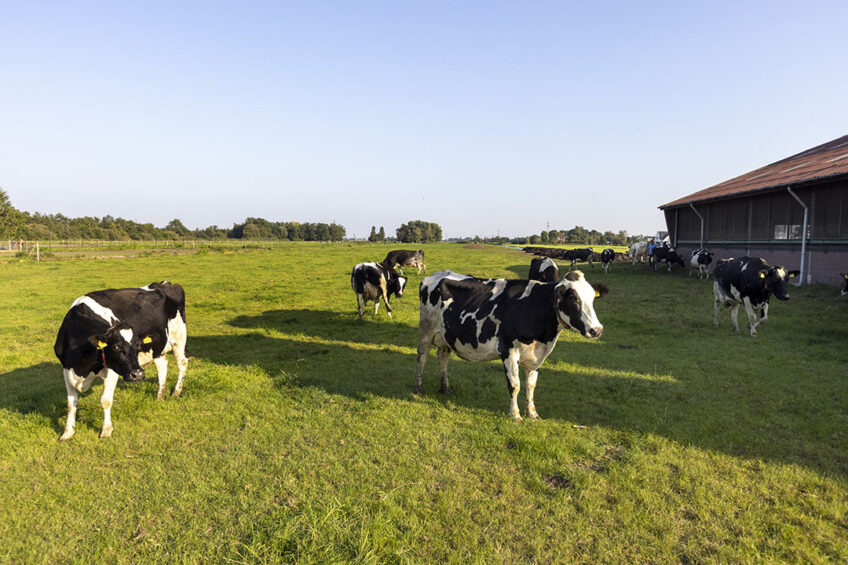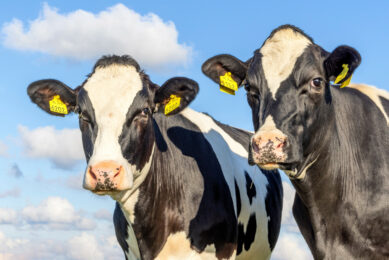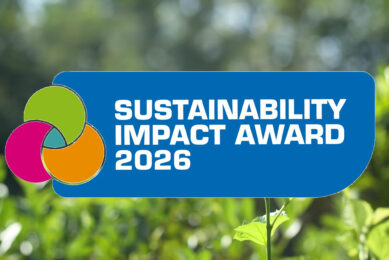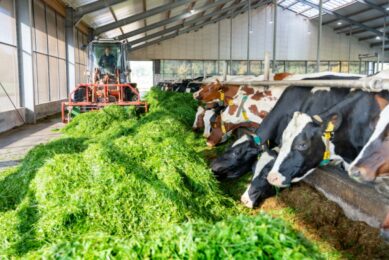UK dairy farmers’ view: Sustainable Farming Incentive pilot

Mother and daughter dairy farmers, Tracey and Jess Langton, are among the first producers to be piloting the UK government’s Sustainable Farming Incentive (SFI) – one of the new schemes replacing the EU’s Common Agricultural Policy.
The Langtons, who run the family dairy farm at Langley Mill, Derbyshire, are trialling a new way of paying farmers for land management over the next 3 years.
The milking herd is predominantly pedigree Holsteins and Friesians, and Jess has been introducing Jersey and Norwegian Red genetics in a bid to increase milk fat and protein content in line with their dairy contract.
Sustainable practices
Two months into the pilot, Jess, who is also studying genetics at the University of Nottingham, has been planting trees in a bid to combat climate change. She told the BBC: “We’ve been planting some silver birch trees. We don’t really use the area where we planted them and we would like to use it to become more regenerative and sustainable and tackle the challenges of climate change. By incorporating sustainable practices on our farm, we are more likely to be able to do our bit for climate change.”
See Dairy Global’s COWS & CLIMATE section, here
Her mother, Tracey, along with a number of other farmers, has been concerned about the lack of communication and slow release of details about the new payments. Farm leaders are concerned that a ‘perfect storm’ may be brewing at the Rural Payments Agency (RPA) over the delivery of new and existing farm support schemes in England. Mapping and hedgerow data issues at the RPA have been blamed for delayed offers to other farmers for the SFI pilot.
The UK nation all have their own support plans, but ministers expect the scheme in England to eventually entice 70% of farmers to cover the same percentage of land with ‘cover crops’, such as brassicas, beans and grasses to boost soil fertility.
In the first phase, the government is offering £22 (€26.19) per hectare for farmers to test soil, produce a social management plan and cover 70% of the ground in the winter. They will get £58 (€69.03) per hectare if they cover 95% of their soils with 15% of herbal planting to nourish the land.
Joining the pilot
Defra said more than 1,000 farmers had applied to join the pilot, which went live in November. It is aimed at paying farmers for actions that relate to farming activities that will generate significant environmental outputs. Through SFI, the government wants – within a few years – for all farmers to produce climate and environmental benefits, alongside food production.
From 2022, the initial SFI offer will:
- Enhance the natural health and fertility of soils
- Contribute to efforts to reach net zero – assuming by 2028 the soil standards cover 50% to 70% of eligible agricultural soils in England, this could save approximately 330-460,000 tonnes of CO2 equivalent in 2028
- Improve the health and welfare of farmed animals
The SFI will include an annual health and welfare review with a Defra-funded yearly veterinary visit. It includes diagnostic testing for priority diseases bespoke advice on health, welfare, biosecurity and responsible use of medicines. In the dairy sector, testing will focus on bovine viral diarrhoea.
The UK’s Environment Secretary, George Eustice, announced at the recent Oxford Farming Conference that the SFI will site alongside the Landscape Recovery and Local Nature Recovery schemes.
For more information, click here.
Join 13,000+ subscribers
Subscribe to our newsletter to stay updated about all the need-to-know content in the dairy sector, two times a week.










